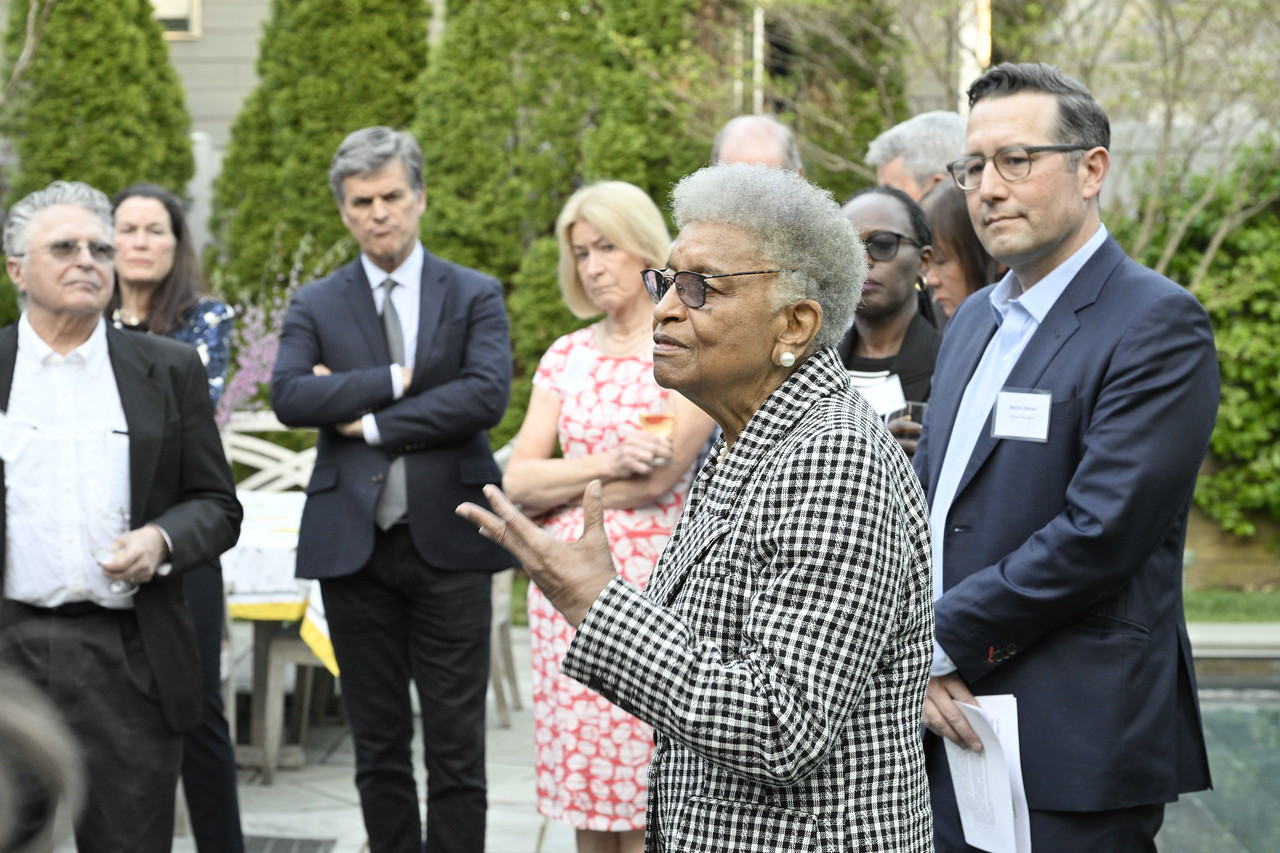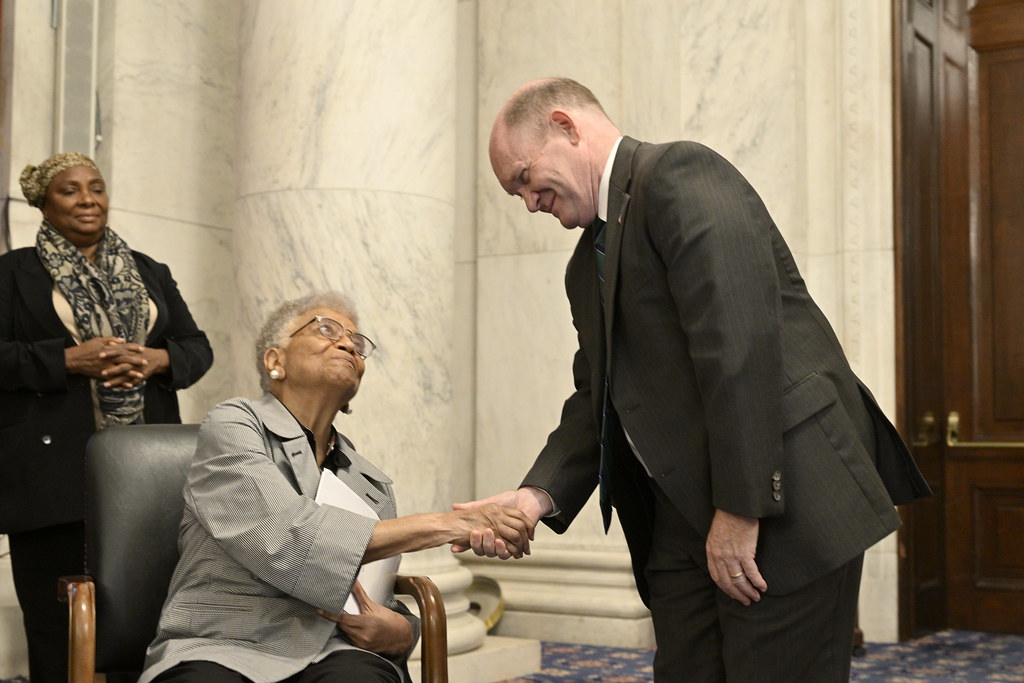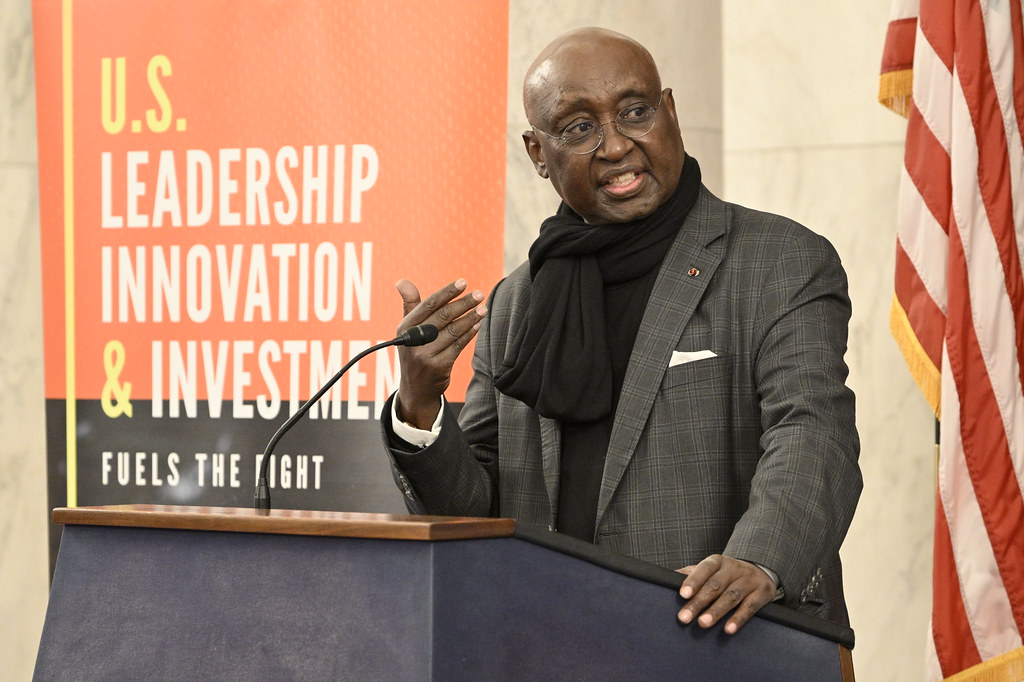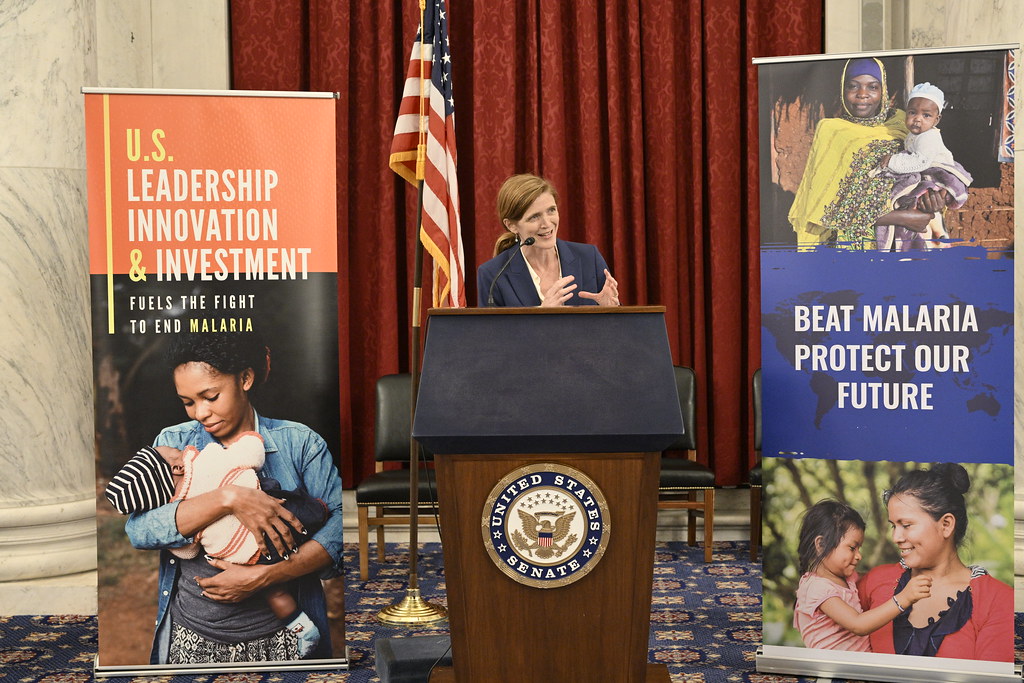Internationally known as Africa’s “Iron Lady,” former Liberian President Ellen Johnson-Sirleaf joined Malaria No More for World Malaria Day 2022 in Washington, D.C. to deliver a message directly to policymakers and global health leaders: step up on pandemic preparedness.
“Investing in community and primary healthcare is critical to responding to and ending strong epidemics and pandemics, including before they explode. Threats to public health and the fight to overcome them are won or lost on the frontlines.”
Ellen Johnson-Sirleaf, Former President of Liberia
Her Excellency Johnson-Sirleaf, who made history as Africa’s first elected female president, led Liberia for 12 years, including during the 2014-16 Ebola outbreak that killed nearly 5,000 people in her country. Recognized as a global leader for women’s empowerment, President Sirleaf was awarded the prestigious Nobel Peace Prize in 2011. Sirleaf has said it took huge determination to beat Ebola in Liberia, and that it will require more of that same determination to finally beat Covid-19 and prepare for future pandemics.
Leaders Convene on World Malaria Day
On April 25, World Malaria Day, President Sirleaf joined Malaria No More and the Global Fund, for an intimate gathering of global health and philanthropic leaders, including Dr. Donald Kaberuka, Chair of the Global Fund Board. Sirleaf, a long-time champion of malaria eradication efforts and member of the End Malaria Council, urged increased global investment in the Global Fund as it heads into its 7th Replenishment Conference and aims to raise $18 billion.
The event discussed two innovative efforts hosted by the Global Fund:
- Africa Frontline First (AFF) – a catalytic fund to support 10 countries to sustainably train, equip and deploy 200,000 professionalized and integrated community health workers.
- Outcomes Fund for Fevers (OFF) – a catalytic fund using performance-based financing to scale differential diagnosis, treatment and data reporting for malaria and fevers in the private sector.
Over the past two decades, the global campaign to end malaria has emerged as one of the greatest humanitarian success stories of our generation, with more than 10.6 million lives saved and $2 trillion in economic benefits delivered for malaria-affected countries.
Yet, a third of families in sub-Saharan Africa still lack access to basic lifesaving testing and treatment. As a result, a child still dies from a mosquito bite every 1 minute.
During this vital replenishment year for the Global Fund, Madam Sirleaf joins the malaria community in advocating for scaled-up, innovative programs that will expand frontline testing, treatment and digital reporting via community health workers and private sector networks in sub-Saharan Africa to save lives now and strengthen health systems for future pandemics.
"There are no visas that will stop a mosquito or Omicron or Delta of COVID-19. That’s why it’s so important to see this initiative for a global response."
Ellen Johnson-Sirleaf, Former President of Liberia
Heard on Capitol Hill
On April 26, Sirleaf joined a congressional reception on Capitol Hill to commemorate World Malaria Day 2022, hosted by Malaria No More, the UN Foundation’s United to Beat Malaria, and the Congressional Caucuses on Malaria and Neglected Tropical Diseases. The reception brought together policymakers, Administration officials, and the malaria community to support increasing investments in the U.S. President’s Malaria Initiative, as well as to discuss new solutions for combatting the world’s oldest pandemic and how malaria platforms can be leveraged to win the Covid-19 endgame and prevent future pandemics globally.
Congressional leaders, including Senate Malaria Caucus Co-Chairs, Sen. Roger Wicker (R-MS) Sen. Chris Coons (D-DE), expressed support for PMI’s 5-year strategy to End Malaria Faster, to save the lives of 4 million children in the next five years.
"Our fight against malaria is a national security issue."
Senator Roger Wicker (R-MS), Malaria Caucus Co-Chair
"What is most important is that we sustain hope, that we help millions of people in dozens of countries realize that we are still at work. As long as there is one more village, one more mother, one more child that is needlessly suffering and pointlessly dying from an entirely preventable disease, I will not stop.”
Senator Chris Coons (D-DE), Malaria Caucus Co-Chair
Implemented through USAID, PMI has made incredible progress in the malaria fight since its inception in 2006. PMI partner countries have driven a 29 percent decline in malaria rates and 60 percent decline in malaria death rates. While malaria still causes an estimated 229 million illnesses and 409,000 deaths worldwide, PMI support gives millions of people the ability to protect themselves and others from this preventable and treatable disease.
“We have a chance to finally end our enduring battle with this disease. Amid all else that ails this world, let us not waste that chance.”
SAMANTHA POWER, USAID ADMINISTRATOR
###












